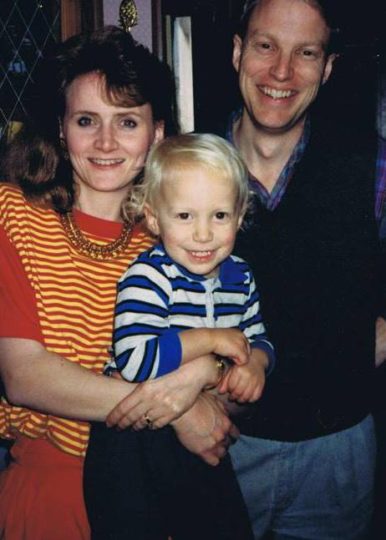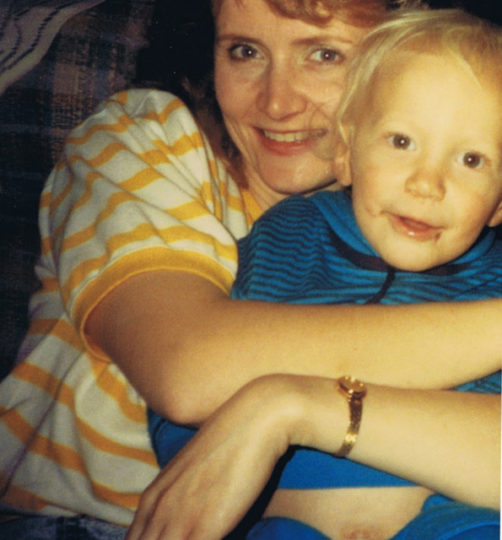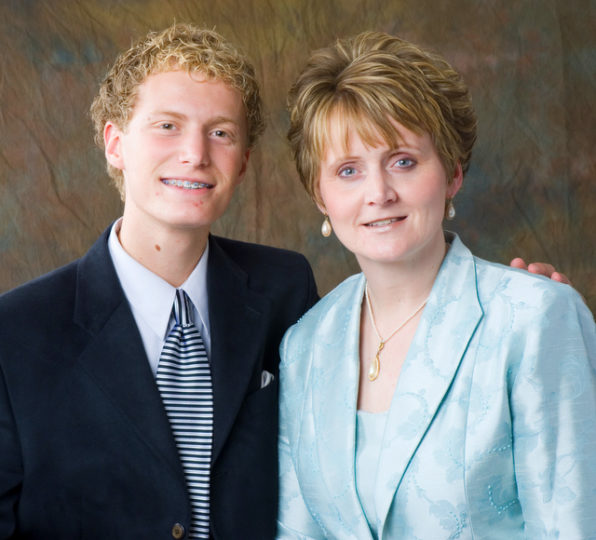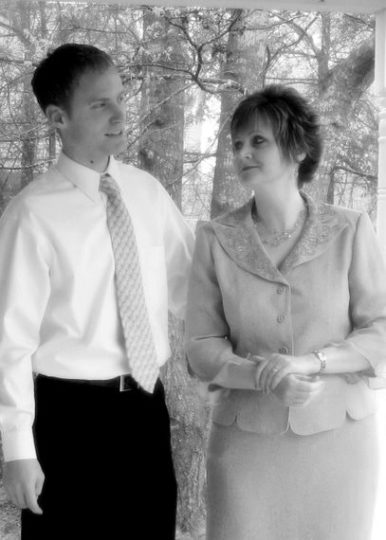
“Your blood work came back great. No elevated sed rate and no rheumatoid factors were present.”
When my rheumatologist told me that yesterday, I just smiled, sat back and got myself ready for a nice little non-scary chat about osteoarthritis, the “regular” kind of arthritis that occurs naturally with aging and is not as traumatic (to me, at least ) as rheumatoid arthritis.
However, I was rudely awakened from my relieved ruminations when the doctor added, “Based on the x-rays and your symptoms, I am about 80% sure that you have rheumatoid arthritis and that it is not a mild case.”
I stared at her slightly agog (and also agape) and quickly brought all my attention back to bear. Normal blood work? And I could still have this disease? What’s that all about?
Although I had the ridiculous urge to burst into tears, I forced myself to listen calmly as she explained that negative blood work does not always indicate an absence of RA. The small finger joint on my right hand (swollen to at least twice its size with a bone spur poking out) and some other indications were all causing her to lean toward the RA diagnosis.
She is putting me on two relatively mild meds (a light-dose steroid and Plaquenil) for three months to see what the response is. If things improve, I’ll stay on that same regimen but if things stay the same or get worse, she’ll get me going on something stronger.
It appears as though I will be taking some sort of arthritis medication for the rest of my life, but I know that so many other people have things so much worse. I’m going to keep on counting my blessings–even if I have to do it on arthritic fingers.
As I’ve started to deal with this new diagnosis, I wanted to mention two brief things that have happened:
1. Looking back at my appointment yesterday, I so appreciated that my doctor was very hands on with me. She didn’t just poke disinterestedly at my hands with her forefinger and say, “Yep, you’ve got it bad. Look at all these problems. Who’s next?”
Instead, she sat beside me, took each of my hands in both of hers and gently and compassionately pointed out the areas of concern. It was such a small thing in the grand scheme of things but her actions made me feel cared for and cared about. I felt like I wasn’t just another patient in a long line of patients but that I had a face and a name and she was concerned about me as a person, and not just as a collection of symptoms.
2. In a similar vein, when Nathan and Meagan were home for Christmas, he and I were in the kitchen together one day and I showed him my swollen little finger. I was touched by the compassion that bubbled to the surface as his voice took on a tone of concern. He gently touched my finger with his forefinger and said, “Oh, Mom, that looks really bad. I bet it hurts. Have you had a doctor look at it yet?”
He spent five minutes patiently and intently listening to me share my worries and my concerns about not having full use of my hands and how difficult it was already to do certain things. When he finally left the room I sat at the table by myself for a moment and just savored the feeling of being comforted by my child.
I have kissed his owies and bandaged his knees a hundred times in my life and it has been my great pleasure and joy to bring him that comfort. And when the tables were turned, the compassion and comfort he gave me were better medicine than any doctor could ever prescribe.
A doctor and a son.
Both of them instinctively understood how important it was for them to lean into the sufferings of another person and to not draw away. Their hands and not just their words were used as conduits of compassion and healing.




I admire your optimism. And love the Four Fingers video, which I’m mentioning here because I know it’s coming and it’s clearly related. Though it seems a bit odd to mention it here, because chronologically that post is in the future, except that I’m commenting now, when both posts are technically in the past. Or something.
Kristina,
Well, here I am in the future commenting on your comments that were on my posts which were technically in the past.
Hmmm. . .
Becky,
I’m 32 years old and had JRA as a child, and was officially diagnosed with adult RA when I was 27. I have been on most of the medications for RA, and after five years I finally received remission with only a few flares.
I have a pretty severe case of it, however I don’t allow it to control my life. I still work a full time job, I also go to graduate school full time. I have my days where the pain get to be too much, and will go to bed at 6 p.m. and wake up and do everything all over again. On the really bad days, my husband steps up to the plate and does more around the house (the cooking, the dishes, the laundry etc.)
I was going to this one doctor who told me that having children was out of the question, and I should stop going to school and apply for disability. Knowing that was not an answer for me, I found a new doctor and he gave us the blessing to start trying to have a baby in December.
If you have ANY questions about RA, feel free to email me. I’m one the same medication as you (three times a day) and also take a shot every two weeks.
Jennifer
Jennifer, thanks so much for taking the time to share your oh-so-encouraging story! It’s wonderful to know that people with even a severe case of RA still life a full life.
And congratulations on getting your doctor’s permission to start a family; how wonderful is that? 🙂
Again, thanks for shedding a more positive light on a very dreary topic.
I’m so sorry to hear this. I’m in the SAME boat with no diagnosis, but lots of symptoms. I’m 34, but feel 94 most days. I’m on Plaquinil and if you stay on it, PLEASE GET YOUR EYES CHECKED OFTEN!! It can cause irreversable damage to your eyes. I have my regular eye exam and then a medical eye exam 6 months later (considered high risk meds) so she can check my eyes twice a year. Plaquinil does help me, but i hope she told you about going to the eye doctor. Good luck and I hope it helps you.
Hugs from Maryland
Jenn
Jenn, I’m sorry to hear you are having the same problem as me; not a fun thing, that’s for sure.
Yes, my doctor did mention the eye issue to me. She said that it is more of a problem for people who are shorter which, although that is a documented fact, did not make a whole lot of sense to me!
So I did a little research and found out that 400 mg per day has been the standard dose for a long time. However, because Plaquenil is not absorbed into fatty tissue, the weight used for determining a safe dose should be our “dry” weight– that is, how much we would weigh without fat. So recently Ophthalmologists have recommended that dosing be based on height. For people 5’6″ and taller, 400mg is a safe dose. But for shorter people, regardless of how much they actually weigh, need to be on a lesser dose.
I learn something every day!
praying for that 20%!
your apples didn’t fall far from the tree…
no wonder both Nathan and Sarah are so compassionate!
Mrs. Pam,I’m very thankful for my two little “apples.”
Having a compassionate doctor is wonderful and too many don’t understand that “manner” anymore. The doctor I went to with my arthritis problems was just such a compassionate and “listening” type of doctor. All these diagnoses of things we thought only our elders were afflicted with is an eye opener, isn’t it. But march on we must and will because, as I have found out lately, I AM the elder in the family now. How did that happen, as I am still so very young???!!!!! Nathan is such a gem. Meagan truly found her prince.
Mary H, I was surprised to learn that the peak time for diagnosis of RA is between 30 and 55! I was thinking I was young to be getting it but now I realize that I’m right smack dab in the middle. So glad you have a good doctor, as well. It makes a big difference!
Sorry about the RA diagnosis. But, on a good note, maybe the meds will bring some relief. Also, I like a doc who thinks outside the bloodwork. Isn’t it amazing the amount of comfort a child can bring to his ailing mama?
Keep us posted 🙂
Lesley, “Thinking outside the blood work.” That’s a great line and a great description–yes, I am so thankful to have a doctor like that. And yes, I’m also amazed by the comfort our kids can bring us.
Becky,
So sorry. I know you must be in pain. But such sweet sweet words from Nathan. You are blessed.
“Nonny,” yes, those words from Nathan are definitely ones to treasure.
Becky, I’m so sorry about your diagnosis. I’m praying and hoping that the two meds will do it for you. Please take the time to grieve for the loss of your youthful joints and vigor, and face down your anxieties so you can cope with RA’s annoyances as they appear, and not until they do.
What a wonderful blessing both your children are to you!
Hmmmm, I think I worded my comment about anxieties poorly. (I’M the one who worries about things long before they happen, or are even remotely likely to happen, not YOU!) Please amend what I said to, “One day at a time.”
Jan, I’m right there with you. I can do some “ahead of time worry” myself. But yes, one day at a time is good advice for us all! And your words about taking time to grieve is good advice; it is a loss in many ways and loss needs its own space for grief.